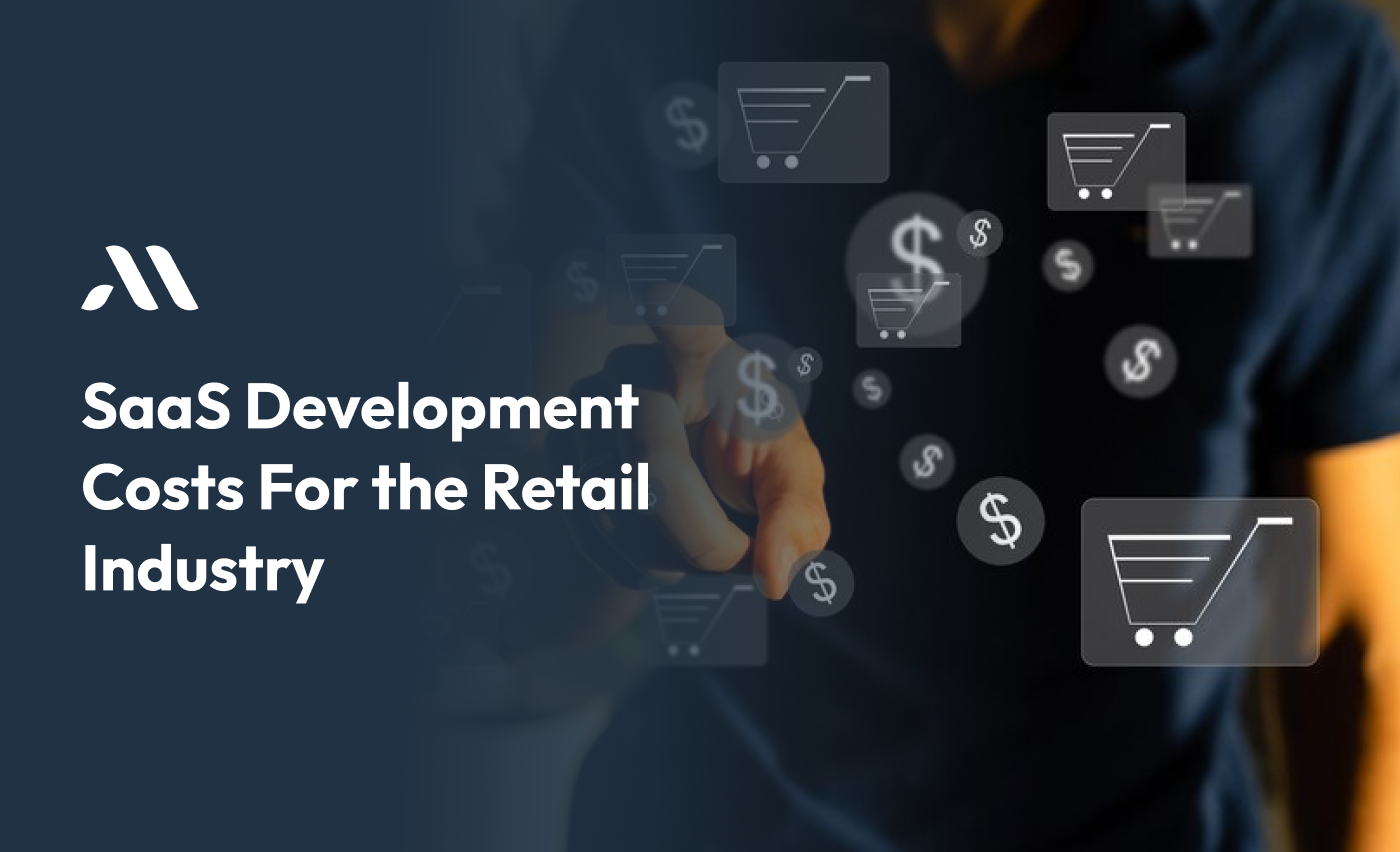In today’s fast-paced world, retail businesses need to keep up with technology to stay ahead. One way they do this is by using Software as a Service (SaaS) solutions. But before diving in, retail business owners often wonder, "What are the SaaS development costs?" This article will help you understand the costs involved in developing a SaaS platform for the retail industry and how it can benefit your business.
What is SaaS for Retail?
SaaS for Retail is a type of software that retail businesses use to manage their operations. Instead of buying and installing software on each computer, SaaS allows you to access the software online. This means you can use it anytime and anywhere, as long as you have an internet connection.
Example: Think of SaaS as renting a movie online instead of buying a DVD. You pay a monthly or yearly fee to use the software, and it gets updated automatically without you having to worry about it.
Why Retail Businesses Choose SaaS
Retail businesses choose SaaS because it’s flexible, easy to use, and cost-effective. With Retail Software as a Service, you don’t have to worry about maintaining or upgrading the software yourself. Everything is handled by the SaaS development company.
Here are some key benefits:
- Scalability: You can easily add more users or features as your business grows.
- Automatic Updates: Your software is always up-to-date.
- Lower Initial Costs: Instead of paying a large amount upfront, you pay a small fee each month.
- Accessibility: Access your software from any device, anywhere.
Understanding SaaS Development Costs
When considering SaaS development costs, many factors come into play. It’s important to understand these factors so you can plan your budget effectively.
Complexity of the Platform
The more complex your SaaS platform, the higher the cost. For instance, if you need a system that manages inventory, sales, customer relationships, and more, it will cost more than a simple point-of-sale system.
Tip: Start with the essential features and add more as your business grows. This way, you can manage costs effectively.
Design and User Experience
A well-designed, user-friendly interface will cost more but is worth the investment. Retail employees should be able to use the software easily without much training.
Note: Good design isn’t just about looking nice. It’s about making the software easy to use, which can save time and reduce errors in the long run.
Development Time
The time it takes to develop your SaaS platform affects the cost. A longer development time means higher costs.
Remember: Rushing development can lead to bugs and issues down the road. It’s better to take your time and get it right the first time.
Integration with Other Systems
If your retail business uses other software, you may need your SaaS platform to integrate with it. This can add to the cost of developing a SaaS platform.
Example: Integrating your SaaS platform with your existing CRM or accounting software can make your operations smoother but may increase development costs.
Maintenance and Support
After your SaaS platform is developed, you’ll need ongoing maintenance and support. This is usually a recurring cost and is necessary to ensure your software runs smoothly.
“Investing in maintenance is like taking care of a car. Regular check-ups prevent costly repairs down the road.”
Average SaaS development costs for small to medium retail businesses range from $30,000 to $150,000 depending on the complexity.
Ongoing maintenance costs can be about 15-20% of the initial development cost per year.
Businesses that use SaaS can reduce IT costs by 30-50% compared to traditional software.
Choosing the Right SaaS Development Company
When it comes to developing a SaaS platform for your retail business, choosing the right SaaS development company is crucial. Here’s what to look for:
Experience in Retail SaaS
Make sure the company has experience in developing SaaS for retail. They should understand the unique needs of the retail industry.
Portfolio of Past Work
Ask for examples of their past work. This will give you an idea of their capabilities and style.
Transparent Pricing
A Good SaaS Development Company will provide a clear breakdown of the SaaS development costs. There should be no hidden fees.
Ongoing Support
Ensure the company provide ongoing support and maintenance. Your SaaS platform will need updates and fixes over time.
Tip: Ask about their response time for support issues. You don’t want to be left hanging when you need help.
How to Save on SaaS Development Costs
While SaaS development can be costly, there are ways to manage these expenses:
- Start Small: Begin with a basic version of your SaaS platform and add features as needed.
- Use Pre-built Modules: Some SaaS development companies provide pre-built modules that can be customized for your business. This can save time and money.
- Opt for Cloud Hosting: Hosting your SaaS on the cloud can reduce costs related to infrastructure and maintenance.
Also Read - SaaS Development Lifecycle - Complete Guide
The Long-term Value of SaaS for Retail
Though the initial cost of developing a SaaS platform may seem high, it’s important to consider the long-term value. Retail Software as a Service can streamline your operations, reduce errors, and improve customer satisfaction. Over time, these benefits can lead to increased sales and profits, making the investment worthwhile.
“SaaS is not just an expense; it’s an investment in the future of your retail business.”
Conclusion
Understanding SaaS development costs is essential for any retail business considering this technology. While the costs can vary based on the complexity of the platform, the design, and the level of support needed, the benefits of using SaaS for retail far outweigh the initial investment. By choosing the right SaaS development company and planning your budget carefully, you can create a powerful tool that will help your retail business grow and thrive.
If you’re ready to explore Retail Software as a Service, start by assessing your business needs and setting a budget. Remember, the right SaaS platform can be a game-changer for your retail business.
Ready to take your retail business to the next level? MicraSol can help you develop a powerful SaaS platform that fits your needs and budget. Contact us today to get started on a solution that will save you time, and money, and boost your business growth!
FAQS
How much does it cost to develop a SaaS platform for retail?
The cost of developing a SaaS platform for retail can vary. It usually ranges from $30,000 to $150,000, depending on what features you need. This includes things like design, development time, and making sure it works with other software you use.
Are there any ongoing costs after the SaaS platform is built?
Yes, there are ongoing costs for maintenance and support. These help keep your software running smoothly and can be around 15-20% of the initial development cost each year.
Why is SaaS better than traditional software for my retail business?
SaaS is better because it’s easier to update, you can access it from anywhere, and it costs less upfront. Plus, you don’t have to worry about maintenance because that’s handled by the SaaS provider.
Can I start with a basic version of a SaaS platform and add features later?
Yes, you can start small with the essential features and add more as your business grows. This helps you manage costs and ensures you only pay for what you need.
What should I look for in a SaaS development company?
Look for a company with experience in retail SaaS, a good portfolio of past work, clear pricing, and reliable ongoing support. This will ensure you get a high-quality platform that meets your needs.








